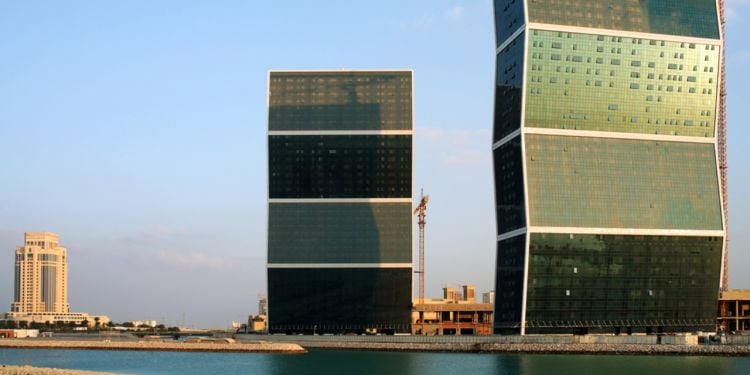
Due to the constant movement of expatriates in Qatar, there is a huge variety of rental options to suit all budgets. This guide will give you some pointers on what you need to get started and things you should be aware of.
Essential documents for renting accommodation in Qatar
To rent a property in Qatar, you will need the following:
- A valid Qatar ID and residence permit;
- A salary certificate from your employer;
- A copy of your passport;
- A checkbook with at least 13 blank cheques from a Qatari bank account.
Rental agreement in Qatar
All rental agreements in Qatar are written up in English and Arabic. If you are only presented with an Arabic contract, you should ask for a translated copy for your records. Take your time to have the translation verified by a trusted party, as the Arabic version of the contract is the only one considered binding by a court of law. Lease contracts in Qatar are usually drawn up for a year and are renewable on an annual basis. Once the contract has been signed, the landlord has 30 days to register it with the Ministry of Municipal Affairs & Agriculture, along with a registration fee of 1% of the total annual rent.
When renting accommodation in Qatar, it is recommended that you review your rental contract thoroughly, paying particular attention to specific terms and clauses. These include but are not necessarily limited to:
- The rental fee and method of payment;
- Specifics relating to a security deposit;
- Duration of the contract, including moving in and moving out date;
- Notice periods and related conditions;
- Will the landlord cover utility bills, or is this the tenant's responsibility?
- Will the landlord take care of maintenance issues? Are there any general maintenance issues that are your responsibilities as a tenant?
- What restrictions are there? E.g., pets, curfew, noise restriction after a certain time;
- If the apartment is furnished, will an inventory be provided of all equipment? It is recommended to take pictures of any furnishings that have cosmetic damage, however minor, and provide these to the landlord. Also, ask to see the inventory to check that all items are provided as listed.
Most properties in Qatar require a security deposit of one month's rent. This amount is usually fully refunded at the end of the contract period, provided there isn't any damage to the property and the tenant hasn't lapsed on any payments for the duration of the contract.
You may be required to pay for your rent in post-dated cheques for the duration of your tenancy. Make sure you have at least 13 blank cheques that can be signed for the duration of your tenancy.
Good to know:
A higher turnover of housing takes place in Qatar at the beginning and end of the summer months due to families moving for school and relocating for the school holidays. Rental prices can be negotiated depending on the landlord. You may be offered a discount if you are able to pay for many months in advance.
Important:
In the event that you have a dispute with your landlord, the matter needs to be presented to the Rental Dispute Settlement Committee, which is located next to Rawdat Al Khail Park in Muntazah, off C Ring Road.
Rental process in Qatar
The rental process in Qatar typically involves several steps and considerations. Here is an overview:
Determine your budget
Before starting the rental process, it's important to determine your budget for rent. Consider your monthly income, other expenses, and the cost of living in Qatar to establish a realistic budget. Determining your budget to rent a property in Qatar requires careful consideration of your financial situation and the cost of living in the country. Here are some steps to help you determine your rental budget:
- Evaluate your income: Start by evaluating your monthly income or the amount you can allocate towards rent. Consider your salary, allowances, bonuses, and any other sources of income. Ensure you have a clear understanding of your monthly income after deducting taxes and other mandatory expenses.
- Assess your expenses: Calculate your monthly expenses, including essential costs such as utilities, groceries, transportation, healthcare, insurance, and any existing debts or financial obligations. Deduct these expenses from your monthly income to determine the amount you can comfortably allocate toward rent.
- Consider the 30% Rule: As a general guideline, it is often recommended that you allocate no more than 30% of your monthly income to rent. This rule helps ensure that you have sufficient funds for other expenses and savings. However, the actual percentage may vary based on your individual circumstances and financial goals.
- Research the rental market: Research the rental market in Qatar to get an idea of the average rental prices in different areas and neighborhoods. Explore online real estate portals, consult with real estate agents, or seek advice from local residents to gather information about prevailing rental rates.
- Cost of living: Take into account the cost of living in Qatar, including expenses for groceries, dining out, entertainment, transportation, healthcare, and education (if applicable). Qatar's cost of living can vary depending on factors such as location, lifestyle choices, and personal preferences.
- Additional costs: Consider any additional costs associated with renting a property in Qatar. This may include service charges, maintenance fees, utility bills, security deposits, and agent fees (if applicable)—factor in these additional costs when determining your budget.
- Plan for savings: It's important to allocate a portion of your income towards savings or an emergency fund. Aim to save a certain percentage of your income each month to build financial security and plan for future expenses.
- Flexibility: Keep in mind that your rental budget may require flexibility based on the availability of suitable properties and market conditions. Being open to different areas or property types can provide more options within your budget.
Research and shortlist
Conduct thorough research to identify areas and neighborhoods in Qatar that align with your preferences and needs. Consider factors such as proximity to your workplace, schools, amenities, and transportation options. Shortlist properties that meet your criteria. When researching and shortlisting properties to rent in Qatar, it's important to consider your preferences, budget, and specific requirements. Here are some steps to help you in the process:
- Define your requirements: Start by clearly defining your requirements for a rental property. Consider factors such as the number of bedrooms, preferred location or neighborhood, proximity to schools or workplaces, desired amenities (e.g., swimming pool, gym, parking), and any specific features or preferences you may have.
- Browse online real estate portals: Explore online real estate portals that list properties available for rent in Qatar. Some popular portals in Qatar include Property Finder, and JustProperty. Use the search filters to narrow down your options based on your requirements, budget, and preferred locations.
- Consult with real estate agents/companies: Consider reaching out to reputable real estate agents in Qatar, like Ezdan Real Estate, Capstone Property, United Development Company, etc. who specialize in rental properties. They have in-depth knowledge of the market and can provide guidance based on your requirements. Real estate agents can also share property listings that may not be publicly available.
- Attend property exhibitions and open houses: Keep an eye out for property exhibitions or open houses happening in Qatar. These events provide an opportunity to explore multiple properties in one location and interact with agents or property owners directly. Check local listings or online platforms for upcoming events.
- Check local classifieds and community boards: Local classifieds and community boards, both online and offline, can be a good source to find rental properties, especially in specific neighborhoods or communities. Look for advertisements in local newspapers, community newsletters, or online groups catering to expatriates or residents in Qatar.
- Seek recommendations and local insights: Reach out to friends, colleagues, or acquaintances who are familiar with the rental market in Qatar. They can provide insights, recommendations or even refer you to available properties that may not be widely advertised.
- Visit property management websites: Some property management companies or real estate development websites in Qatar may list their available rental properties. Visit their websites to explore the options they offer, and contact them directly for more information.
- Take note of property details: When shortlisting properties, make a note of key information such as the location, size, amenities, rental price, and contact information. This will help you compare and evaluate the properties later.
- Conduct property viewings: Once you have a list of shortlisted properties, schedule property viewings with the respective landlords, agents, or property management companies. Visiting the properties in person allows you to assess their condition, layout, and suitability for your needs. Take note of any maintenance or repair issues and inquire about the terms and conditions of the rental agreement.
- Evaluate the neighborhood: During property viewings, take the opportunity to explore and evaluate the neighborhood as well. Consider factors such as accessibility, proximity to amenities, safety, and overall appeal.
- Compare and make a decision: After viewing multiple properties, compare them based on your requirements, budget, location, amenities, and any other factors that are important to you. Consider the rental price, lease terms, and any additional costs associated with each property. Make a decision based on your evaluation and preferences.
Remember to take your time, ask questions, and gather all the necessary information before making a final decision. It's advisable to visit properties in person whenever possible to get a better sense of the space and its surroundings.
Negotiate lease terms
When you find a property that meets your requirements, negotiate the lease terms with the landlord or the landlord's representative. This may include discussing the rental price, duration of the lease, payment terms, and any specific conditions or requests you may have.
Once you agree on the lease terms, a rental agreement will be drafted. Read the agreement carefully and seek clarification on any terms you are unsure about. Ensure that all agreed-upon terms, including the rent amount, security deposit, and maintenance responsibilities, are clearly stated in the agreement.
Security deposit
Pay the security deposit as per the agreed terms. The security deposit is usually refundable and serves as protection for the landlord against any damages or unpaid rent.
The rent in Qatar is typically negotiable between the tenant and the landlord. There is no standard rent set by the government, and the rental price can vary depending on various factors such as the location, size, condition, and amenities of the property.
During the negotiation process, both parties can discuss and agree upon the rental price, terms, and conditions. It is common for landlords to advertise their properties with an initial asking price, but there is often room for negotiation, especially for long-term rentals.
It is recommended to conduct thorough research on the current rental market and comparable properties in the area to get an idea of the prevailing rental prices. This will help you in determining a fair and reasonable rent offer during the negotiation process.
Additionally, it is important to note that some landlords may request multiple months of rent upfront or request advance rent payments. These terms can also be subject to negotiation, and it is advisable to clarify all payment-related details before signing the rental agreement.
Overall, the rental price in Qatar is generally negotiable, and it is recommended to engage in open and transparent communication with the landlord to reach a mutually agreeable rental amount.
Ejari registration
For rental properties in Qatar, the Ejari registration process is typically required. Ejari is a system that registers the lease agreement with the relevant authorities. It is important to ensure that the rental agreement is registered to benefit from legal protection and dispute resolution mechanisms.
Utility connections
Arrange for the connection of utilities such as electricity, water, and internet services in your name. Some landlords or real estate agencies may assist with this process or provide guidance on the necessary steps.
Move-in inspection
Conduct a thorough inspection of the property before moving in. Take note of any existing damages or maintenance issues and communicate them to the landlord or property management. This will help avoid disputes regarding the condition of the property when you move out.
Rental payments
Pay the monthly rent as per the agreed terms and timeline. Most landlords prefer post-dated cheques or bank transfers for rental payments. Ensure you make timely payments to maintain a good relationship with the landlord.
It's important to note that the rental process in Qatar may vary slightly depending on the landlord, the real estate agent, and the specific property. It is advisable to consult with professionals and seek legal advice if needed to ensure a smooth and transparent rental process.
We do our best to provide accurate and up to date information. However, if you have noticed any inaccuracies in this article, please let us know in the comments section below.








